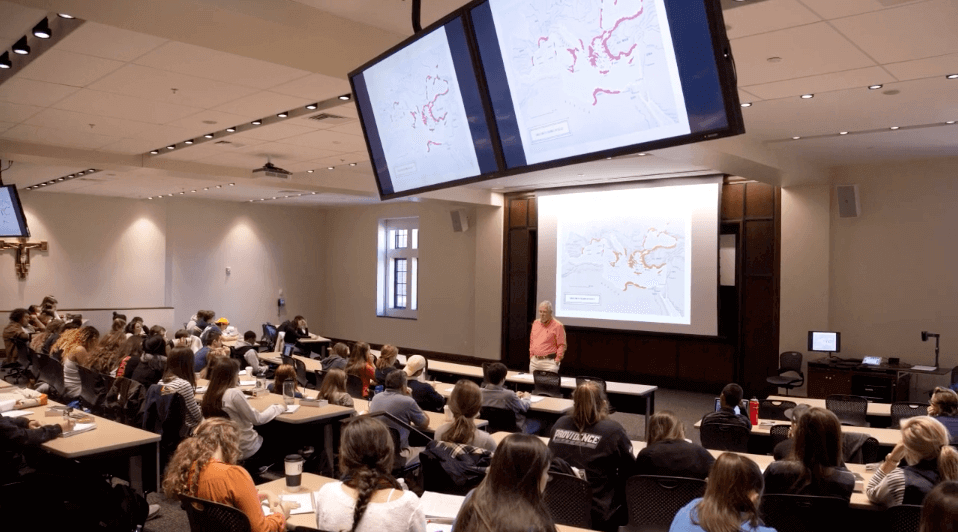by The Cowl Editor on September 27, 2018
Opinion

by Alyssa Cohen ’21
Opinion Staff
Development of Western Civilization (DWC) has indisputably become a hallmark of Providence College, as the program has a reputation for being rigorous and writing intensive, while instilling a strong humanities background in every student.
While this program ensures every PC graduate is equipt with strong writing and communication skills, along with an extensive understanding of how the Western world grew to become what it is today, a lot of the curriculum that makes up DWC can be redundant and tedious for humanities majors.
For most majors under the umbrella of the humanities, students are required to take a variety of different classes, which all focus on developing reading, writing, textual analysis and discussion skills, just as DWC does.
Additionally, humanities majors are required to take classes that focus on a variety of time periods— English majors are required to take four pre-1800 and four post-1800 literatures classes, thus they develop an understanding of the rise of Western civilization through their major classes alone.
Not to mention the amount of reading that accumulates for a humanities major on top of DWC.
If the average student takes five classes a semester, comprised of two to three classes that fulfill his or her major, DWC, and an elective or alternative core requirement, there is bound to be overlap in those subjects.
If that student is a humanities major, they will be enrolled in a minimum of three reading-heavy classes, which translates to hundreds of pages of reading a week. Often times they will be reading the same books in different classes.
“Between my two English classes and DWC, I had approximately 300-500 pages of reading a week,” explained English major Sarah Kirchner ’21.
To that end, is it really feasible for a humanities major to carefully examine hundreds of pages of complex texts in a single week without becoming burnt out—especially if DWC merely reiterates the same skills humanities majors learn from their major required classes?
In turn, as the function of DWC is to ensure all PC students receive a well-rounded education, and the curriculum of DWC is so closely linked with that of the required courses of humanities majors, is it really necessary for these undergraduate students to be required to take the same four semesters of DWC as science, business, or math majors who are covering entirely different material in their major courses altogether?
While DWC serves as a refreshing change of content for non-humanities majors, the workload for DWC becomes tedious for humanities majors, consuming the effort and concentration these students need for their major required classes.
“Civ serves as an enjoyable change of pace in my science-based course load,” shared biochemistry major Katelyn Hino ’22. “DWC has helped me to hone in on my writing and literary analysis skills, abilities we do not focus on in my other classes. However, that said, I can see how DWC could become repetitive for any humanities major.”
Essentially, to avoid the monotony of DWC for humanities majors, the College should at least consider reconstructing the curriculum so it is differentiated based on a students major.
While non-humanities majors could continue to develop their linguistic abilities, humanities majors could develop skills and content that are not as heavily focused upon in their major required classes, such as logic, reasoning, and science-based abilities.
Overall, the DWC program could engender an exceedingly more well-rounded education in PC students if the course was specialized based on major, so that it would fulfill the gaps in academic material that is not covered in major-required classes.